What Japan did in WWII - UK
This series is from a local TV program in Japan to get closer to the real facts of WWII. For more detail, go to the prologue.
http://yellowpeep.blogspot.com/2005/12/what-japan-did-in-wwii-malaysia.html
You may think that it is one-sided history from Japanese perspective. So did I. But actually I've never been taught in school about the fact the TV says. And suddenly I realized that I am the one who only knew the other one-sided history. Let me know how you felt.
The staff flew to United Kingdom.
Narator : Having achieved industry revolution earlier than any other countries, Britain got deeply involved in the world history including asia with its superpower. We've come here London to see how they teach students their complicated history of WWII.
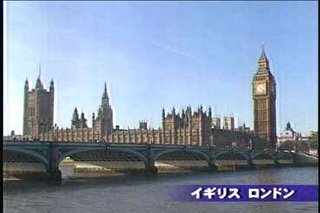
Narator : We met an elder citizen who remembers WWII.
Old man A: The government made us believe the propaganda that looked German and Japanese were all evil. I learned it's not after then.
Old Lady A : I remember Churchill appeared on a radio to boost the morale of ours. Everyone heard him speech. "Since we have all the colonies all over the world, we can collect army from there. So we never surrender," he said. Narator : The history textbook used in UK gives few descriptions on the war agiasnt Japan. Moreover, we couldn't even find the words "imperialism" or "colonies". Why don't they teach those important words to students ? Mr. Will, who teaches its history in a junior high school, explains that the opinions about the imperialism are not unified even inside UK.
Narator : The history textbook used in UK gives few descriptions on the war agiasnt Japan. Moreover, we couldn't even find the words "imperialism" or "colonies". Why don't they teach those important words to students ? Mr. Will, who teaches its history in a junior high school, explains that the opinions about the imperialism are not unified even inside UK.
Teacher Will : In our textbook, the incidents that would be shameful to us are deliberately ommitted. For instance, Suez crisis in 1956 is not described, and neither is Amritsar massacre in 1919.
Narator: Not many students learn the war between Britain and Japan. We visited London University and asked students who study Japanese what led both the countries to WWII.
Student A : Actually we were not taught about that. I think Japan felt a lot of pressure from the Western and America. That cornered Japan and made it expand for its interest.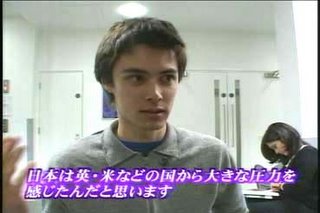
Studnet B : United nations advanced to overseas for their prosperity. Japan did it for its economic profit and raw materials.
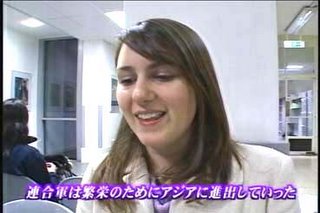 Narator : Here we arrived at National Military Museum in London. It exhibits many historical heritages from mediaval to modern age. This museum provides various seminars about the wars according to generations from kindergarteners to university students.
Narator : Here we arrived at National Military Museum in London. It exhibits many historical heritages from mediaval to modern age. This museum provides various seminars about the wars according to generations from kindergarteners to university students.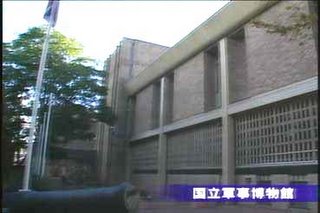
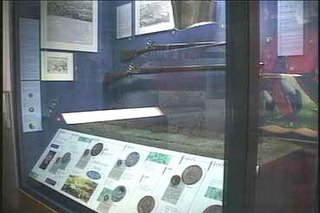
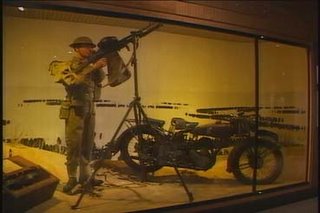
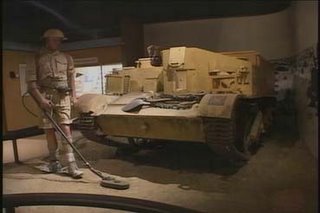 Narator : We ran into a seminar for students from a junior high school.
Narator : We ran into a seminar for students from a junior high school.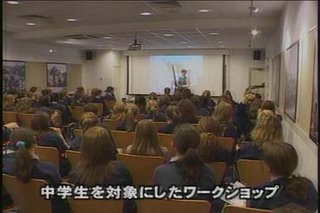 Narator: Julian is a popular lecturer with his lilting talk. He is giving a talk about WWI (Not WWII !) spending 70 minutes.
Narator: Julian is a popular lecturer with his lilting talk. He is giving a talk about WWI (Not WWII !) spending 70 minutes.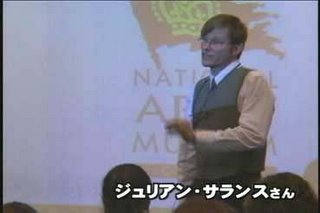 Julian : Military service used to be voluntary until January 1916.
Julian : Military service used to be voluntary until January 1916.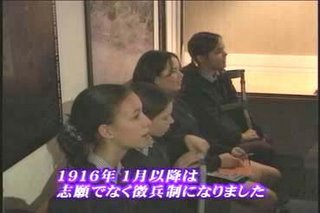 Julian : Since then, mens over 18 got inducted into army. Among volunteers, Indian occupied a great percentage; For an example, Indians were the majority in the army in Western French in 1915.
Julian : Since then, mens over 18 got inducted into army. Among volunteers, Indian occupied a great percentage; For an example, Indians were the majority in the army in Western French in 1915.Julian : The picture you are looking at is Caribbean army. At that time, Great Britain posessed a vast territory from which armies were sent to France. Carib, Africa, India, Canada, SriLanka, etc.
Narator : He came to explain what a soldier is about. He has students hold up granades and teaches how long it takes to explode.
Julian : OK. Your name is Sam from now on. Consider everyone else around you is enemy. What equipment do you think is necessary to fight?
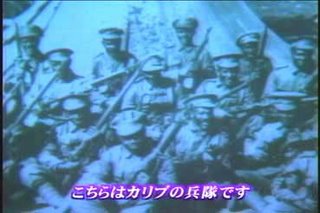
Some student: Rifle !
Julian : You can't go on a war naked. Haven't you seen a war movie?
Other student : Pants !
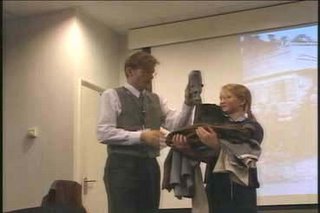 Julian : Pants! (LOL in the class)
Julian : Pants! (LOL in the class)
Narator: And he went on the ourfits of a typical soldier in WWI. Every thing about underwears, shirts, socks, or even the number of those supplyments is introduced.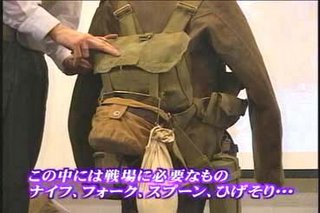 Julian : You're going to put everything you need in battlefields. Knife, fork, spoon, razor....
Julian : You're going to put everything you need in battlefields. Knife, fork, spoon, razor....
Julian : You need to shot 15 shots a minute to be eligible for a full sallery.
Narator : Now the student is full equipped. He left a comment that everyone should pay a respect to soldiers who went to battlefields.
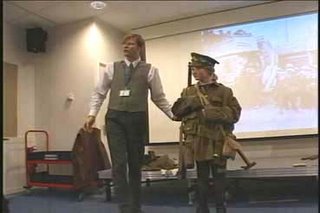
Stuent A : It was a very intesting seminar. Unlike our daily classes, I virtually experienced what a war is all about.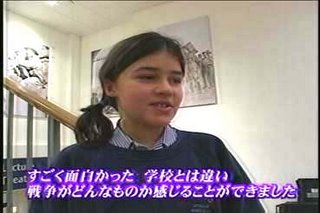
Narator: After the seminar, students are allowed to touch the equipment from WWI. Next seminar is about WWII. Mainly he is going to talk about the war in Europe.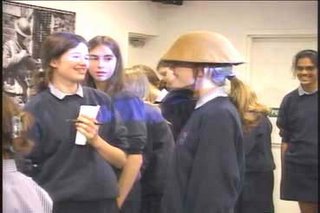
Narator: We asked Will the key point to teach history.
Will : I want them to understand the history we are learning is a provisional one. History is a subject changing as time goes by because we ourselves are changing. Therefore, it is necessary to look back and assess the history again and again.
***********************************************************
Links to the whole contents of "What Japan did in WWII":
What Japan did in WWII - Malaysia (prologue)
What Japan did in WWII - UK
What Japan did in WWII - Myanmar
What Japan did in WWII - Indonesia
What Japan did in WWII - Taiwan
What Japan did in WWII - Palau
What Japan did in WWII - Korea
What Japan did in WWII - Thailand
What Japan did in WWII - (epilogue)
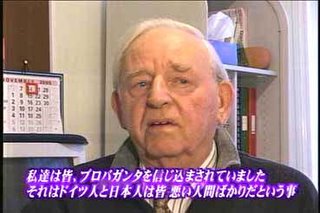

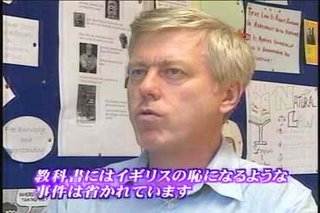
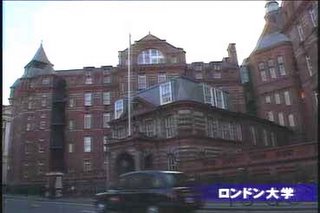
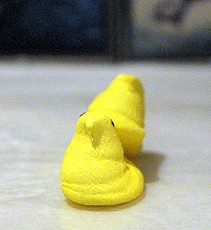

0 Comments:
Post a Comment
Subscribe to Post Comments [Atom]
<< Home